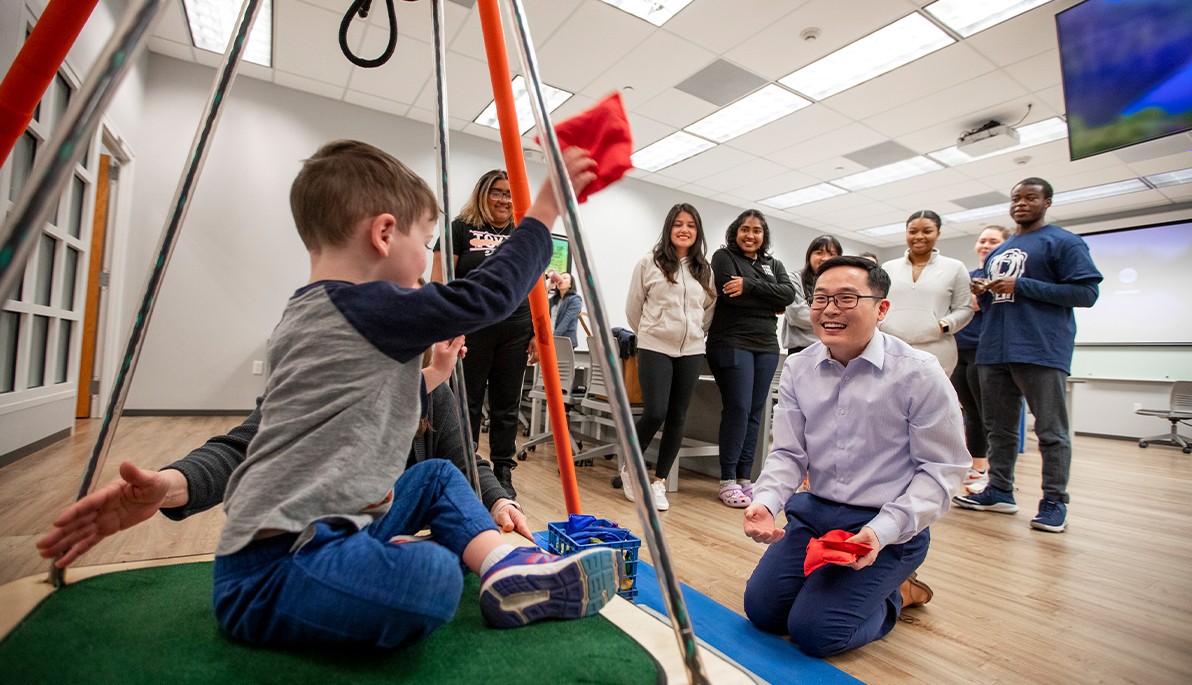News
Op-ed: Autism diagnoses are on the rise. School policy must change.
September 5, 2023
As awareness of autism spectrum disorder (ASD) has increased, the number of children diagnosed with the condition has risen dramatically.
Children on the autism spectrum face challenges with communication, social interaction, sensory processing, and repetitive behaviors. Nearly a third also have an intellectual disability. Every diagnosis is an opportunity to help a student who might otherwise struggle, notes Alexander Lopez, J.D., OT/L, associate professor of occupational therapy, in a Fortune op-ed.
“Unfortunately, our growing understanding of autism in the medical community has not yet translated to U.S. school systems. Educational strategies to help students with ASD have remained largely unchanged for decades,” he writes.
“I’ve seen how occupational therapy can help children with ASD improve their communication skills, and I’ve seen the impact of physical activity on brain function,” says Lopez, who has two decades of experience training healthcare professionals to work with students on the autism spectrum.
While most children with ASD receive early intervention during their preschool years, the services change once students enter the K-12 system. Teachers can’t always access the training and resources needed to tailor education for students with autism, and due to these students’ delays in motor processing, they are often excluded from sports, music, and other extracurricular activities.
This model marginalizes children with ASD.
Occupational therapists and other healthcare professionals specializing in treating autism can play a vital role in supporting these students. Yet most schools don’t have the resources to employ such specialists. Among those that do, some have tried to hire out these roles to independent contractors, but this doesn’t work long term.
This is where policymakers must step in. Changes are needed at the state and federal levels to ensure that appropriate ASD intervention continues beyond preschool. “K-12 schools should be required to have occupational therapists or other autism specialists on staff,” Lopez states.
Policies supporting equitable resource allocation across public schools are also needed. In-school programs and specialists are essential to ensuring that children of all backgrounds get help.
Finally, as a matter of policy, children with ASD must have opportunities to engage in sports and are encouraged to move frequently during the school day. Too many schools have eliminated recess and physical education; this is bad for all children but disproportionately harms those with autism, whose cognitive and physical development greatly benefit from exercise and play.
“With effective therapies delivered by trained healthcare specialists, children with autism can become less marginalized, more independent, and participate meaningfully in everyday life,” he concludes.
Read the entire op-ed.
This op-ed is part of a campaign designed to help generate awareness and build reputation for the university on topics of national relevance. Read more op-eds by New York Tech thought leaders.





